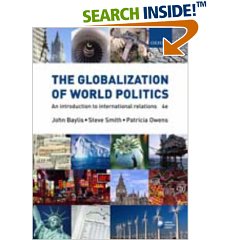신자유주의와 글로벌리즘에 대한 비판적 연구 서적
A Brief History of Neoliberalism
by David Harvey (Author)
- David Harve is a Distinguished Professor of Anthropology, Graduate Center, City University of New York.
Editorial Reviews
`Review from previous edition 'With characteristic brilliance, David Harvey offers a razor-sharp analysis of the history and current condition of neoliberalism. A must read if you want to know the state we are in and how to change it.'' Erik Swyngedouw, Professor of Geography, University of Oxford
`'This is a succinct account of what neoliberalism is, where it came from and where it is going.'' Morning Star
`'presents a concise but extremely well-documented economic history of the last three decades, encompassing not only the usual G7 countries but the entire world, with a particular emphasis on the US and capitalist China'.' Interactivist Info Exchange
Book Description
Neoliberalism: A Critical Reader (Paperback)
by Alfredo Saad-Filho (Editor), Deborah Johnston (Editor)
First Sentence:
There is a dramatic contrast between the last 20 years of the twentieth century and the previous decades since the Second World War. Read the first page
* Introduction 1
1 The neoliberal (counter-) revolution 9
2 From Keynesianism to neoliberalism : shifting paradigms in economics 20
3 Mainstream economics in the neoliberal era 30
4 The economic mythology of neoliberalism 41
5 The neoliberal theory of society 50
6 Neoliberalism and politics, and the politics of neoliberalism 60
7 Neoliberalism, globalisation and international relations 70
8 Neoliberalism and primitive accumulation in less developed countries 83
9 Neoliberal globalisation : imperialism without empires? 91
10 Neoliberalism in international trade : sound economics or a question of faith? 99
11 'A haven of familiar monetary practice' : the neoliberal dream in international money and finance 106
12 From Washington to post-Washington consensus : neoliberal agendas for economic development 113
13 Foreign aid, neoliberalism and US imperialism 120
14 Sticks and carrots for farmers in developing countries : agrarian neoliberalism in theory and practice 127
15 Poverty and distribution : back on the neoliberal agenda? 135
16 The welfare state and neoliberalism 142
17 Neoliberalism, the new right and sexual politics 149
18 Neoliberal agendas for higher education 156
19 Neoliberalism and civil society : project and possibilities 163
20 Neoliberalism and democracy : market power versus democratic power 170
21 Neoliberalism and the third way 177
22 The birth of neoliberalism in the United States : a reorganisation of capitalism 187
23 The neoliberal experience of the United Kingdom 199
24 European integration as a vehicle of neoliberal hegemony 208
25 Neoliberalism : the Eastern European frontier 215
26 The political economy of neoliberalism in Latin America 222
27 Neoliberalism in sub-Saharan Africa : from structural adjustment to NEPAD 230
28 Neoliberalism and South Asia : the case of a narrowing discourse 237
29 Assessing neoliberalism in Japan 244
30 Neoliberal restructuring of capital relations in East and South-East Asia 251
Critical Globalization Studies
by Richard P Appelbaum (Editor), William I Robinson (Editor)
Critical Globalization Studies is the first volume to map out a critical approach to the rapidly growing field of gloablization studies. Centrally concerned with global justice, the contributors both scrutinze and recast the subject. As well, the volume serves as a bridge connecting scholars of globalization, the policy world, and the gloabla justice movement. The essays examine a wide range of topics too oftern left at the margin of globalization studies and in the process raise a host of crucial questions. Unique in its extensive and comprehensive approach, Critical Globalization Studies develops new and important theoretical perspectives on globalization while engaging global social activism. It is an indispenseable guide for both academics and practitioners
The Globalization of World Politics
by John Baylis (Editor), Steve Smith (Editor), Patricia Owens (Editor)
Now in its fourth edition, this internationally successful title has been fully revised and updated in light of recent developments in world politics, with new chapters on the changing nature of war, human security, and international ethics. A comprehensive introduction to international relations, it is ideally suited to students coming to the subject for the first time. This books is supported by a cutting-edge online Resource Centre. Student resources: Case studies Multiple choice questions Links to journal articles Flashcard glossary Video pod-cast of contributors NEW TO THIS EDITION Video clips NEW TO THIS EDITION News feed NEW TO THIS EDITION Instructor resources: PowerPoint slides Test bank Seminar questions Figures and tables from the book
About the Author
Professor John Baylis is Pro-Vice Chancellor at the University of Wales, Swansea. Professor Steve Smith is Vice-Chancellor of the University of Exeter, and a Professor of International Studies. Dr Patricia Owens is Department Lecturer in Strategic Studies at the University of Oxford and Seton Watson Research Fellow in International Relations, Oriel College, University of Oxford.

